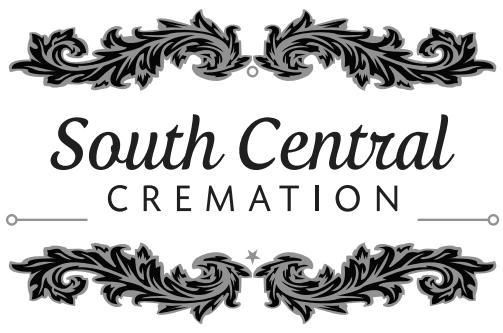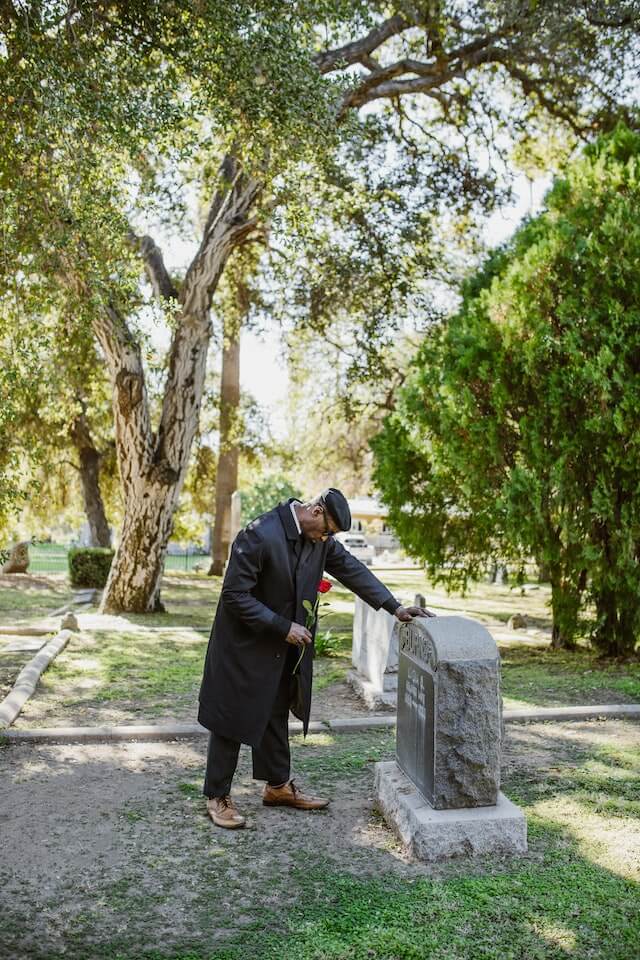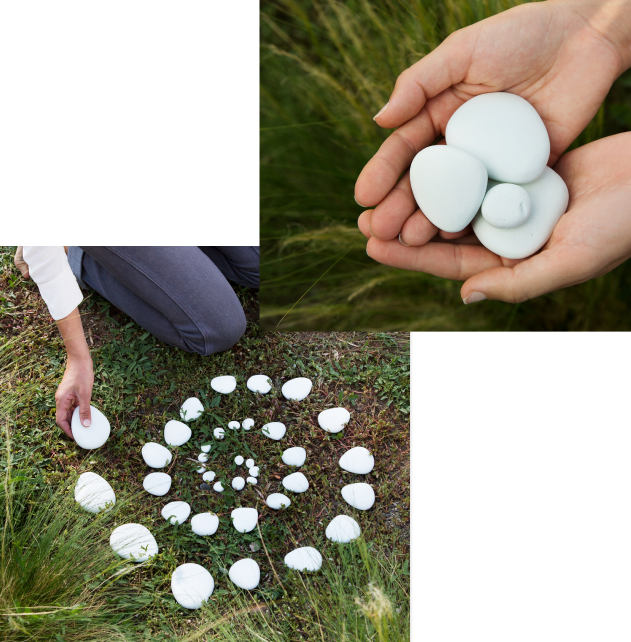How long must we wait after their death before we can cremate a family member?
Unlike burial, cremation is irreversible. This requires us to be "extra diligent" in obtaining cremation authorization from the legally identified next-of-kin, as well as those from any necessary agencies (such as the medical examiner). During these 48-72 hours (depending on state mandated requirements); the deceased will be held in a secure, refrigerated environment.
How much will I have to pay for the cremation?
When you enter into a discussion with us about the cost of your loved one's cremation, whether on the phone or in-person, we are legally obligated to share our General Price List, or GPL, with you. That list details the actual cost of our cremation services, which is a combination of our basic professional services fee, the fee charged by the crematory for the use of their facilities, and any additional charges related to the transportation and safekeeping of the deceased prior to the cremation. It is impossible for us to quote an accurate cost for cremation here; we urge you to speak candidly about cremation costs with your funeral professional.
Can I participate in the cremation?
The answer to this question is dependent on the specific crematory responsible for the care of your loved one, but generally speaking, the answer to this question is "yes". The degree to which you can participate may differ from crematory to crematory (depending on their facilities); please speak with your funeral director if this is an issue for you, or another family member.
Can I purchase an urn from another source, or must I buy one from you?
The FTC's Funeral Rule guides funeral directors in the ethical and fair presentation of funeral service options. The purchase of a cremation urn (or a casket, for that matter) from a second or third party sources is one of the rights it guarantees. Your funeral director cannot prevent you from, nor can they charge you an extra fee for, the purchase of a third-party cremation urn. And they cannot demand you are present for its delivery to the funeral home
What should I do with my loved one's ashes?
Again, as we've said elsewhere, the word "should" need not be part of our conversation. There are many things you can do with their ashes–including simply taking them home with you for safekeeping. There may come a time when you know exactly what you'd like to do with them, but it may not be right now. Be patient; the right way to care for them will surface in time. After all, there are a lot of options: scattering them on land or sea is one of the most common; but you can also use the cremated remains in keepsake jewelry or to create meaningful pieces of art. As we said, there is no have-to-do; there's only a want-to-do (and you are in complete control of it). If you're curious about your options, just give us a call. We'll share what we know.
If we choose cremation, does my loved one have to be embalmed?
The short answer is "no", but there are exceptions. Let's say you want to have a viewing or visitation. If that's the case, it may be prudent to embalm your loved one, so they look their best for the event; so much so that the funeral home may require that you purchase the service. However, with that said, under the FTC's Funeral Rule, we cannot: provide embalming services without your permission, and may not lead you to believe embalming is required by law. In addition, we must provide you with written disclosures related to the embalming of your loved one.
How long will it take to cremate my family member?
Naturally, this question is best answered when we talk specifics: why type of cremator will be used? How large an individual was your loved one? Usually it takes 2 - 2 1/2 hours for the process. A cool-down period follows, and then the cremated remains are processed for a uniform appearance. Certainly, if the issue is important to you, we urge you to speak to your funeral director.
What kind of fuel is used in the cremation?
What kind of fuel is used in the cremation?
Answer: Most cremators use natural or L.P. gas, or in some cases diesel oil; a fact which troubles some who want to see cremation as an "environmentally-friendly" alternative to burial. If you're concerned about the impact of cremation on the environment, speak with your funeral director. There are alternatives, such as burial in a "green" or environmentally-pristine cemetery.
Are people dressed when they are cremated?
You'd be surprised how often we hear this question! Some people might choose to be undressed so as to 'go out' the same way they 'came in' to the world; but most of the time, the deceased is dressed in the clothing they've selected prior to their death, or chosen by family members after their passing.
Can we put special items in their cremation casket?
It depends upon what you mean as "special", but we do our best to accommodate the wishes of surviving family members. Most commonly, families will ask to place notes, children's drawings, or other personal messages of love; but we've certainly had some unusual requests (such as the inclusion of a cherished pet's collar or treasured keepsake). We encourage you to speak with your funeral director to learn the regulations of the specific crematory responsible for your loved one's cremation.
Does this mean we don't need to plan a commemoration service?
Certainly not; cremation merely describes the type of physical end-of-life care you intend to provide your loved one. A commemoration service is for the living; the individuals emotionally impacted by the death deserve the same level of compassionate attention. And one of the benefits of cremation comes from the larger "window-of-opportunity" in which to plan a meaningful celebration-of-life it provides the surviving family members. Your funeral professional can guide you in making all the necessary service arrangements
I'm thinking of placing my loved one's ashes in the care of a local cemetery. What is the difference between a columbarium and a mausoleum?
Think of the Taj Mahal in India and you'll know exactly what a mausoleum is: it's free-standing building (in this case not in India but on the grounds of a local cemetery), which is intended as both a monument as well as the burial location for casketed individuals. A columbarium is the same in purpose, but not in design; instead of crypt spaces large enough for a full-size casket; it features smaller niche spaces, large enough for one (or maybe two) cremation urns.
Can you tell us which type of service is right for us?
We would never presume to tell you which service is best for your loved one. But your funeral director will be pleased to guide and advise; explain the differences between service formats (traditional funeral, memorial service and celebration-of-life), and share stories of meaningful services they've been a part of–all with the intention of empowering you to make the decision for yourselves.
How much will I have to pay for the cremation?
When you enter into a discussion with us about the cost of your loved one's cremation, whether on the phone or in-person, we are legally obligated to share our General Price List, or GPL, with you. That list details the actual cost of our cremation services, which is a combination of our basic professional services fee, the fee charged by the crematory for the use of their facilities, and any additional charges related to the transportation and safekeeping of the deceased prior to the cremation.
What "extra" fees or charges will I need to pay?
It's difficult for us to answer this question without knowing the specifics of your proposed cremation arrangements. Yet with that said we can tell you there will most likely be extra charges for anything that involves a second-party purchase (such as the publication of your loved one's obituary in a local newspaper). If you select a decorative cremation urn and would like to personalize it with an engraved nameplate; there could be a small fee.
What are "cash advance items"?
When you arrive to make the necessary cremation service arrangements on behalf of a loved one, we will furnish you with a copy of our General Price List; a section of which discloses the exact price (or a good-faith estimate) of the most commonly-requested "cash advance items". Cornell University Law School's Legal Information Institute (www.law.cornell.edu) defines a “cash advance item” as "any item of service or merchandise...obtained from a third party and paid for by the funeral provider on the purchaser's behalf. Cash advance items may include, but are not limited to: cemetery or crematory services; pallbearers; public transportation; clergy honoraria; flowers; musicians or singers; nurses; obituary notices; gratuities and death certificates."
Why must I pay for these items at the time of arrangement?
The answer to this is simple: we have to pay for these second-party services or merchandise at the time we make the purchase on your behalf. This requires us to ask for payment for all cash advance items at the time the cremation service contract is agreed to, and signed by the responsible family member. For more specific information about our payment policies, please call us to speak with a member of our staff of cremation service professionals.
Can we arrange to bury their ashes on cemetery grounds?
Yes, you can. The burial can be in-ground, or your loved one's cremation urn can be placed in a columbarium niche. Speak with your funeral director to learn more about your specific cremation burial options
What must I bring to the funeral home?
You'll need to provide the documents/information required to complete your loved one's death certificate and obituary. If you are planning to have a service, you may also wish to bring in a collection of family photographs to be used in making a tribute video or in the decoration of the service location. Other items may be needed at some point, depending on the arrangements made. Your funeral director will provide you with an exact list of the things he or should would like you to bring along to the arrangement conference.
I'd like to write my loved one's obituary. Can I?
Of course you can; in fact any member of your family (or even a close friend) can "step up" to take care of this task. There are many valuable resources available in the Guidance section of this website, including tips on writing an obituary. And you can always turn to us for assistance.


